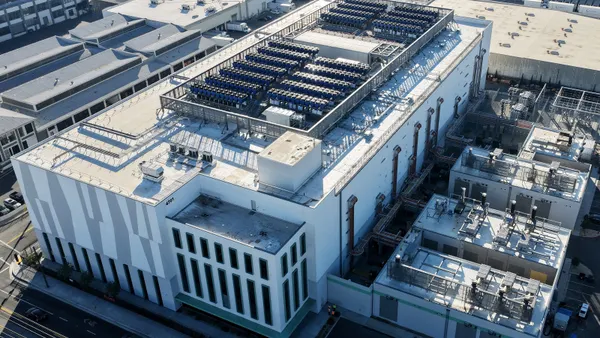Dive Brief:
- International interest in energy efficiency is "at an all-time high," according to the the 2016 Johnson Controls Energy Efficiency Indicator survey, which included more than 1,200 facility and energy management executives in the United States, Brazil, China, Germany and India.
- Half of respondents said they are paying more attention to efficiency than a year ago, and almost three-quarters expect to boost efficiency investments within the next year—both figures representing marked rises within the last three years.
- Cost reductions remain the primary driver of efficiency interest, though the survey also recorded growing focus on energy security, emissions reductions, policy and reputation.
Dive Insight:
Within the next year, some 72% of organizations surveyed by Johnson Controls say they will increase efficiency investments, up from just 42% in the company's 2013 survey. The shift comes as companies see cost savings as a significant benefit to upgrades, alongside improved stature, environmental compliance and system resiliency.
Eight in 10 organizations surveyed said they plan to achieve nearly-zero or net zero use energy, or even produce excess energy, in the future.
"Energy efficiency is the center of a major transformation of our buildings, energy systems and urban infrastructure," Bill Jackson, president of building efficiency at Johnson Controls, said in a statement. "Investment in smart, sustainable and resilient buildings is key to increasing urban efficiency and delivering its many social, environmental and economic benefits."
But there are challenges. The survey identified a lack of funding, insufficient payback, savings uncertainty and a lack of technical expertise, as the most significant barriers to investment.
Organizations operating larger portfolios of buildings are more likely to use internal capital for investments, the survey found, and are twice as likely to secure external financing or use energy services agreements to make energy-efficiency improvements.
Those primarily located in urban areas are more likely to invest in smart building and smart energy technology, with the survey revealing almost two-thirds of organizations in urban areas have invested in building management systems, while more than half have invested in the integration of building management systems with lighting, security, life safety or other building systems.
On-site generation is also growing, especially in cities: the survey found 39% of of organizations in urban areas have invested in on-site renewable energy and 24% in non-renewable distributed generation.
Among other findings: HVAC improvements were the most common upgrades last year; 78% of global organizations have either already certified, or will certify, at least one "green building," and more than 40% of organizations are willing to pay a premium to lease space in a certified green building—up from 15% in the 2013 survey.














